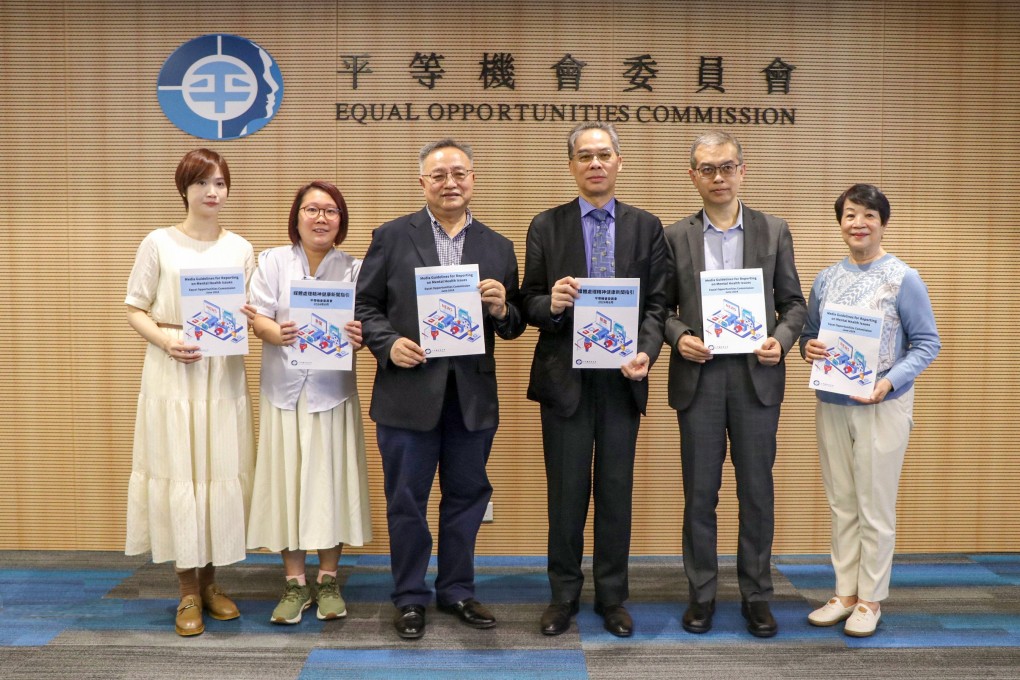Hong Kong equality watchdog warns against derogatory terms that stigmatise mentally ill
- Equal Opportunities Commission releases guidelines highlighting importance of unbiased reporting in media’s coverage of mental health issues

Derogatory terms and sensationalised, clickbait headlines should be avoided in media’s reporting on mental health issues, Hong Kong’s equality watchdog has said in its new guidelines to prevent stigmatisation and better protect mentally ill people.
The Equal Opportunities Commission on Friday released “Media Guidelines for Reporting on Mental Health Issues”, which offered tips for media practitioners and highlighted the importance of unbiased reporting and the proper use of language and images to prevent the labelling of people with mental illness.
The guidelines urged media to avoid conjectures, assumptions or broad generalisations about the conditions of mentally ill people, as well as about the cause of incidents reported, to prevent misconceived associations between mental health issues and threat or violence.
Media were also told to refrain from delving into the private lives of people involved in the incidents of mental health issues, gratuitously reporting the minute details of incidents or depicting them as tragedies, to minimise further harm.
“We hope to leverage the power of the media to have a positive impact on society through reporting in a fair and balanced way and based on facts and objectivity, to instil correct information into the public so they will not [unfairly] label people with mental illness,” said Ferrick Chu Chung-man, the commission’s executive director of operations.
He noted that one out of every seven people in Hong Kong had mental health needs, according to a 2017 review report by health authorities.
A study by the commission last year showed that 78.5 per cent of people with mental illness considered that discrimination against sufferers was prevalent in the city.
